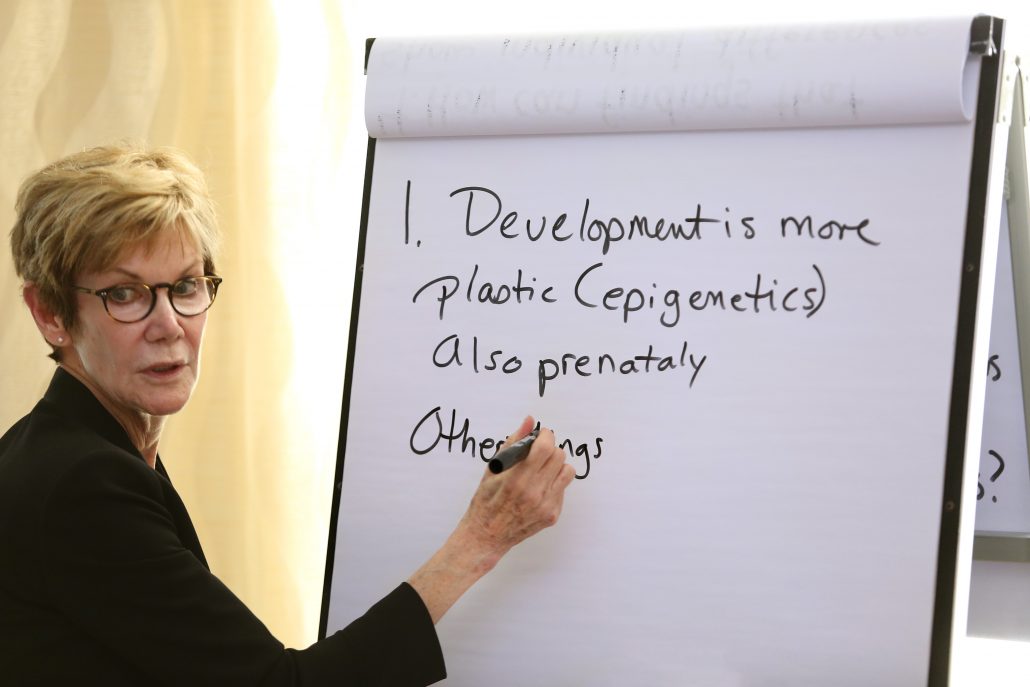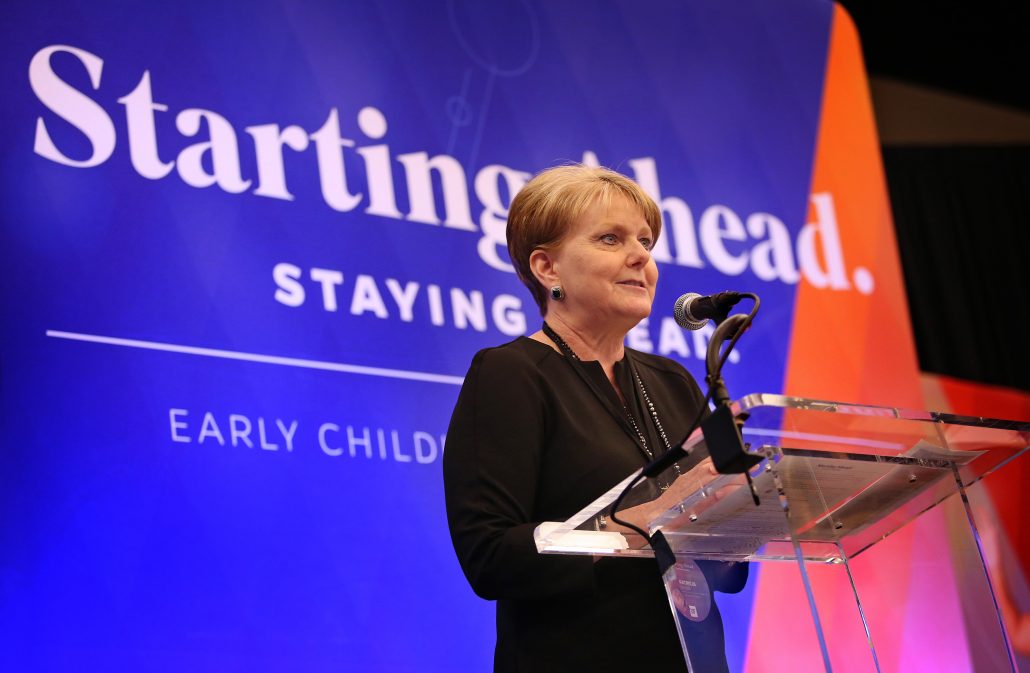
UF’s leadership in early learning seeks to establish a bright future where every child is prepared to learn when they enter school. The Starting Ahead, Staying Ahead Summit successfully connected a group of more than 100 interdisciplinary professionals focused on identifying methods vital to improving action, advocacy, and investments in early childhood.
Giving children a strong start in their first five years doesn’t just help children and their families. The benefits of their success radiate throughout their communities — as do the consequences when they struggle. But the many fields that help shape what happens for young children and their families during these critical years don’t always connect.
Collaborating across disciplines related to early childhood development and learning was one of the challenges posed to over 100 scholars, policy makers, advocates, philanthropists and practitioners who gathered in Orlando for the University of Florida’s Early Childhood National Summit last winter. In the first five minutes, UF President Kent Fuchs made it clear that the summit was focused on creating actionable ideas and steps to move the field forward.
“It is crucial that our work on behalf of children is tangible, that it is scalable, and that it reaches the children who need it,” Fuchs said.

The Anita Zucker Center for Excellence in Early Childhood Studies convened the event, which was attended by professors from six UF colleges and the deans of UF’s College of Education, Levin College of Law, College of Medicine, and College of Public Health and Health Professions.
After a welcome from philanthropist and InterTech Group CEO Anita Zucker, the group heard from keynote speaker Jacqueline Jones of the Foundation for Child Development. After her speech, Jones, who served as the U.S. Department of Education’s first deputy assistant secretary for policy and early learning, stressed the importance of working to retain bipartisan support for early childhood initiatives.
“Where is the common ground, and how do we get to it and hold on to it?” Jones said. “We have to do that, or we’ve failed the children and families we work for.”

Before summit attendees broke out into workgroups, panelists with expertise in psychiatry, pediatrics, psychology, law, education and advocacy shared perspectives to inform the discussions. Their presentations illustrated just how high the stakes are during early childhood, detailing chronic medical conditions with roots in early childhood and factors that influence children’s potential before they’re even born. Then the workgroups got down to the business of the summit: creating recommendations and actions on how to move forward.
By the afternoon, each workgroup had addressed three themes — discovering the keys to opening young minds, influencing the influencers to unlock children’s potential, and inspiring new initiatives for the next generation — drawing on the diverse backgrounds and expertise of participants.
The day closed with talks by Provost Joseph Glover, Zucker and early childhood advocate David Lawrence Jr., a UF alum, president of the Early Childhood Initiative Foundation and chair of the Children’s Movement of Florida. The next morning, Anita Zucker Center Director Patricia Snyder, UF’s David Lawrence Jr. Endowed Chair in Early Childhood Studies, presented each workgroup’s recommendations for feedback and further development.
 Early Learning
Early Learning
